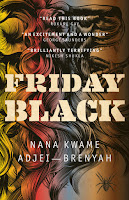In parallel, the famous New York lawyer Jules Epstein leaves his wealth and home and moves to Israel to further spend the rest of his wealth. He's also staying at the Tel Aviv Hilton.
Krauss leads us through the plot in the space between reality and fiction, between the characters' imagined life and the real world, with the knowledge that you risk to disappear in that space, or even encounter yourself already present there.
The narrator and Epstein are not really interesting characters, a little tormented, seekers in a way, but not the kind of individuals whose personality is immediately captivating and driving the story forward. On top of that, Krauss' writing is not very creative and rather bland. Her journey is all about being a jew in this day and age, with Kafka accepting his jewishness or rejecting it, it is not clear. It's the same in the Epstein story, where he gets lured by a rabbi to come to a meeting of direct descendents from King David (!), and which he bizarrely enough accepts, even when he is non-religious.
To me this a mystery of modern day jewish authors: even if they are no longer religious, and possibly condemn the politics of the current Israeli government, they are still fascinated by the jewish identity and culture. As a non-religious person brought up in catholicism, my emancipation from our obscure and narrow religious background is a liberation, including the freedom to embrace the world and finding borders and national identity as something of the past, and more often than not the cause of all evil and war, I find it hard to understand why a modern person like Krauss would dive headfirst in this tradition, especially because you don't want to be defined by it. There is a level of absurdity in this, which I cannot grasp.

























